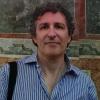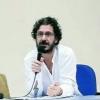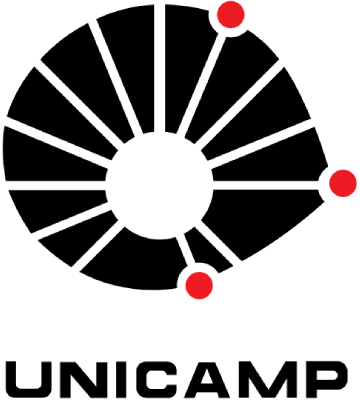
Research Topics
The lines of research are supported by research centers and groups involving professors and students of the Graduate Program who meet regularly in seminars, meetings and colloquia to present and debate their research projects. Several projects involve more than one professor from the same line of research, which demonstrates the fruitful interaction and collaboration between the Program's professors. In addition, a significant number of the permanent professors and students participate in more than one line of the program, which allows greater integration between them and the formation of research links based on the affinities of the philosophical questions and methodological approaches explored in their research.
Around 70% of our permanent professors are CNPQ Research Productivity Fellows and lead various research projects in national and international networks. This not only demonstrates the full adherence of our professors to the field of philosophy, but also the high quality of our intellectual output and the link between formation and research.
Within the scope of research networks, which bring together two or more institutions and research groups, it is worth highlighting the existence of FAPESP Thematic Projects and international agreements led or made up of professors from the Program:
Thematic project funded by FAPESP “Rationality, logic and probability: RatioLog” (process 20/16353-3), coordinated by Prof. Marcelo Esteban Coniglio.
Thematic Project funded by FAPESP “Crises of democracy: Critical Theory and diagnosis of the present time” (process 19/22387-0), coordinated by Prof. Marcos Severino Nobre.
Institutional Internationalization Program - CAPES-PRINT “The Transformations of Philosophy”, coordinated by Prof. Márcio Augusto Damin Custódio.
SPRINT FAPESP Project - International mobility in a cooperation agreement with CONICET (Process: 20/00703-5), coordinated by Prof. Marco Antonio Caron Ruffino.
CAPES/COFECUB Project - “Logic and the intelligibility of computational processes" (Process: 88881.878969/2023-01), with the participation of Professor Marcelo Esteban Coniglio
Maria Sibylla Merian Centres for Advanced Studies conviviality-inequality in Latin America, directed by Professor Marcos Severino Nobre, with funding from the German Federal Ministry of Education and Research (BMBF).
LINES OF RESEARCH
The Graduate Program in Philosophy at the State University of Campinas currently has four lines of research that cover the entire field of the program's area of concentration, which is Philosophy, and are also harmoniously articulated. The program's four Lines of Reaserch are:
The Graduate Program in Philosophy at the State University of Campinas currently has four lines of research that cover the entire field of the program's area of concentration, which is Philosophy, and are also harmoniously articulated. The program's four Lines of Research are:
1. HISTORY OF PHILOSOPHY
Description: This line covers the following segments:
a) History of Ancient Philosophy, dedicated to the classical authors of Greek Philosophy and is intended to investigate, with the help of philological analysis of the Greek text, the fundamental philosophical themes around which the philosophy of the period is organized;
b) History of Medieval Philosophy: using the reception of the classics of philosophical antiquity as a guiding thread, it covers authors, schools or themes from the period known as the “Middle Age” (5th-14th centuries);
c) History of Modern Philosophy, which covers the 17th and 18th centuries and aims to include the authors who began the rationalist tradition, contractualist theorists such as Rousseau and Hobbes, Enlightenment philosophers such as Mary Wollstonecraft, Kantian philosophy and German idealism;
d) History of Contemporary Philosophy, which covers various contemporary strands of philosophy, with an emphasis on Critical Theory, Aesthetics and Philosophy of culture.
Docentes Permanentes

Breno Andrade Zuppolini

Fátima Regina Rodrigues Évora

Inara Luisa Marin Voirol

Lucas Angioni

Márcio Augusto Damin Custódio

Marcos Severino Nobre

Monique Fragelli Hulshof

Oswaldo Giacóia Júnior

Rafael Rodrigues Garcia

Taisa Helena Pascale Palhares

Yara Adario Frateschi
Docentes Colaboradores

Enéias Júnior Forlin
2. LOGIC
Description: This line is dedicated to the investigation and systematic analysis of logical systems from the perspective of contemporary formal philosophical logic in its plurality. This line includes the following segments:
a) Non-Classical Logics, dedicated to the investigation of the various conceptual aspects of paraconsistent, fuzzy, modal, intuitionistic logics, and other so-called “non-classical” logic systems, seeking to find interrelationships between different types of logics (using, for example, translations between logic systems), as well as the definition of appropriate proof systems and semantics; and
b) Formal Semantics, dedicated to the investigation and proposal of formal semantics such as semantics of bivalences, possible worlds, probabilistic and possibilistic semantics, logical matrices and twist structures. Within this segment, the study and development of non-deterministic semantics stands out, especially through non-deterministic matrices and swap structures, the latter introduced by M. Coniglio and W. Carnielli. These studies include algebraic aspects and category theory. One of the aims of developing general semantics is to apply it to the theory of combinations between logics.
Docentes Permanentes

Fabio Maia Bertato

Ítala Maria L.D'Ottaviano

Juliana Bueno

Marcelo Esteban Coniglio

Marco Antonio Caron Ruffino

Walter Alexandre Carnielli
3. ETHICAL-POLITICAL THOUGHT
Description: This line of research is dedicated to the systematic investigation of classical and contemporary themes in ethics and political philosophy. This line covers the following areas:
a) The relationship between ethics and politics from the perspective of updating classical themes in the contemporary debate, with a relevant historical-philosophical study for reflection on the demands and problems of the present;
b) Theories of Democracy, the State and Law, from different perspectives and theoretical matrices, with an emphasis on Critical Theory and the republican, liberal, socialist and democratic strands (representative, participatory, deliberative and radical democracy) and their most prominent representatives in modern and contemporary times.
c) Feminist Theories, focusing on the relationship between Ethics and Politics based on the diagnosis of the exclusion of women from the public sphere and the demand for women's rights;
d) Critical Race Theory, focusing on the relationship between Ethics and Politics based on the diagnosis of the exclusion of black people from the public sphere and the demand for their rights, as elaborated by contemporary black philosophers.
Docentes Permanentes

João Carlos K. Quartim de Moraes

Marcos Severino Nobre

Monique Fragelli Hulshof

Rafael Rodrigues Garcia

Taisa Helena Pascale Palhares

Yara Adario Frateschi
Docentes Colaboradores

Jeanne Marie Gagnebin de Bons
4. THEORY OF KNOWLEDGE AND PHILOSOPHY OF SCIENCE AND LANGUAGE
Description: Dedicated to approaching classic themes in the theory of knowledge and to philosophical, methodological and historical reflection on science and language, this line covers the following segments:
a) Philosophy of Language, dedicated to the analysis of meaning and its epistemic and metaphysical developments, as well as to the pragmatic aspects of communication;
b) Philosophy of Psychology and Psychoanalysis, which investigates the explanatory models of conceptual genesis and the strategies of grounding in psychology and psychoanalysis;
c) Theory of Knowledge, seeks to investigate the philosophical reflections that have been made throughout the history of philosophy on the nature of knowledge, its sources, its limits, and above all, its validity and means of justification;
d) Philosophy of Science, investigates the nature of scientific knowledge, its foundations and implications; among the issues addressed are: genesis and justification of scientific theories; rationality and progress of science; scientific realism and anti-realism; scientific explanations; the interface of the philosophy of science with the history of science; conceptual and theoretical problems relating to the foundations of physical theories; social and ethical aspects of scientific activity; and finally,
e) History of the Philosophy of Nature, which is designed to investigate fundamental themes of historical reflection on the philosophy of nature, from Aristotle to the scientific revolution of the 16th and 17th centuries, passing through the reception and transformation of Aristotelian thought in the Middle and Modern Ages.
Docentes Permanentes

Daniel Omar Perez

Fátima Regina Rodrigues Évora

Inara Luisa Marin Voirol

Márcio Augusto Damin Custódio

Marco Antonio Caron Ruffino

Silvio Seno Chibeni
Docentes Colaboradores

Luiz Benedicto L.Orlandi


